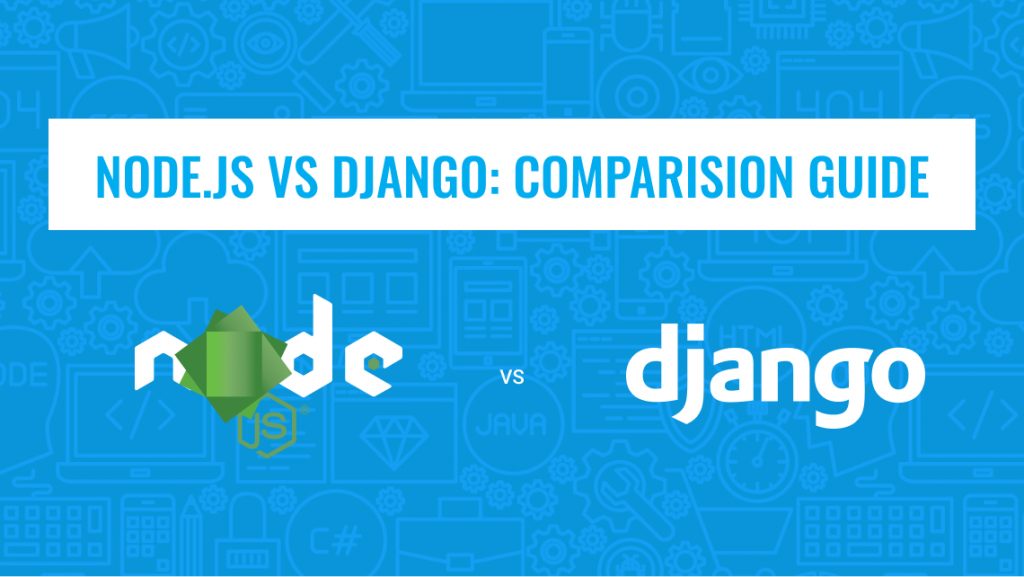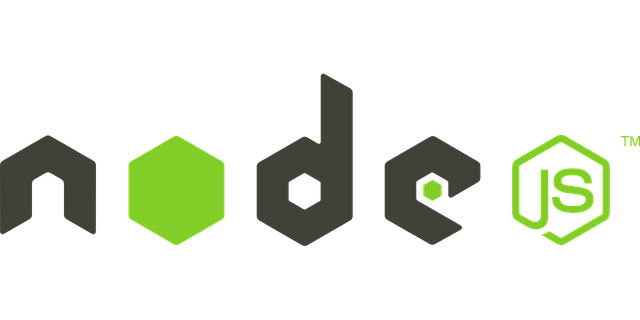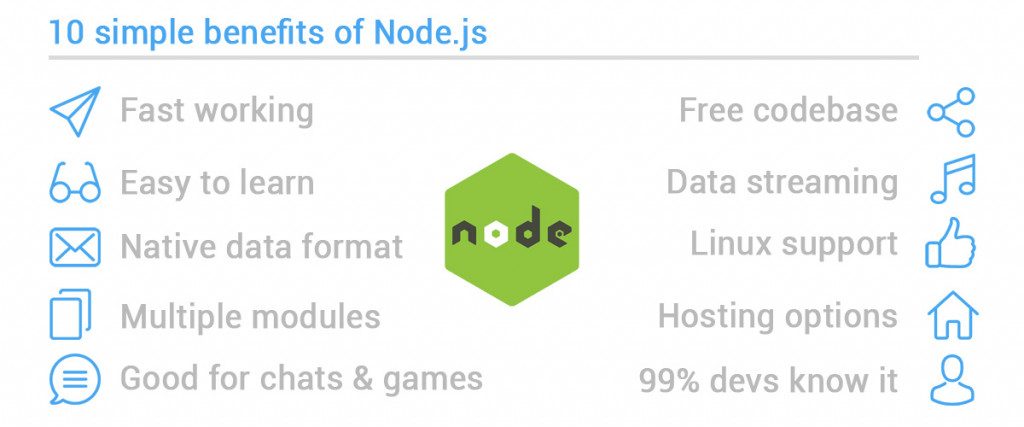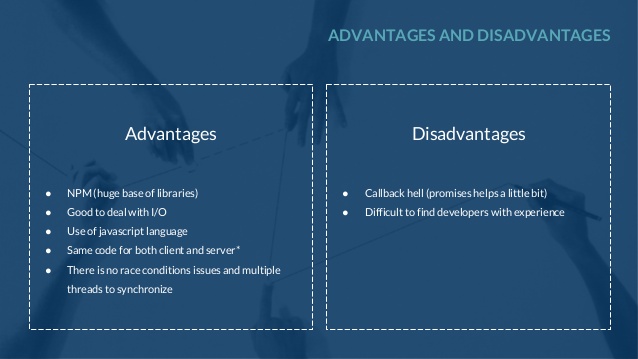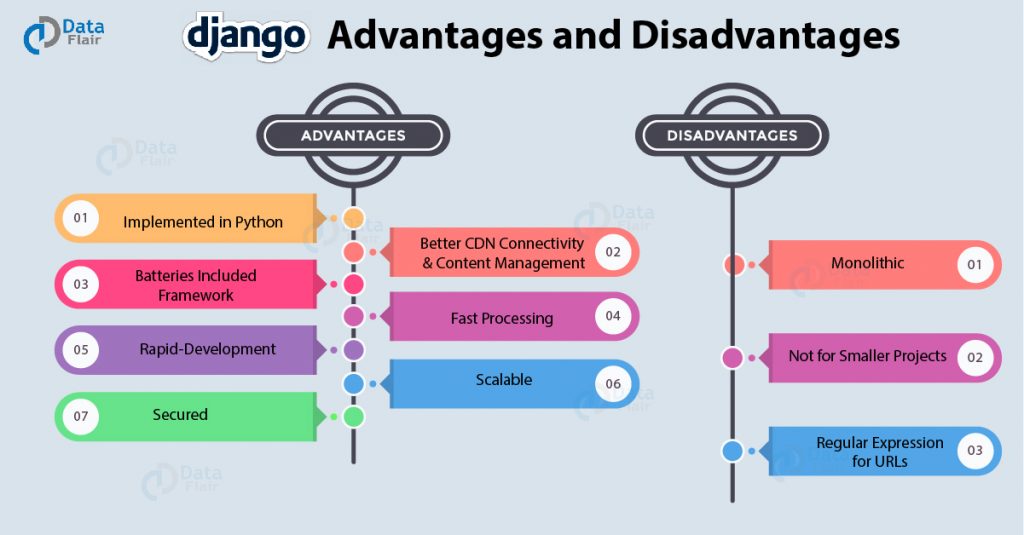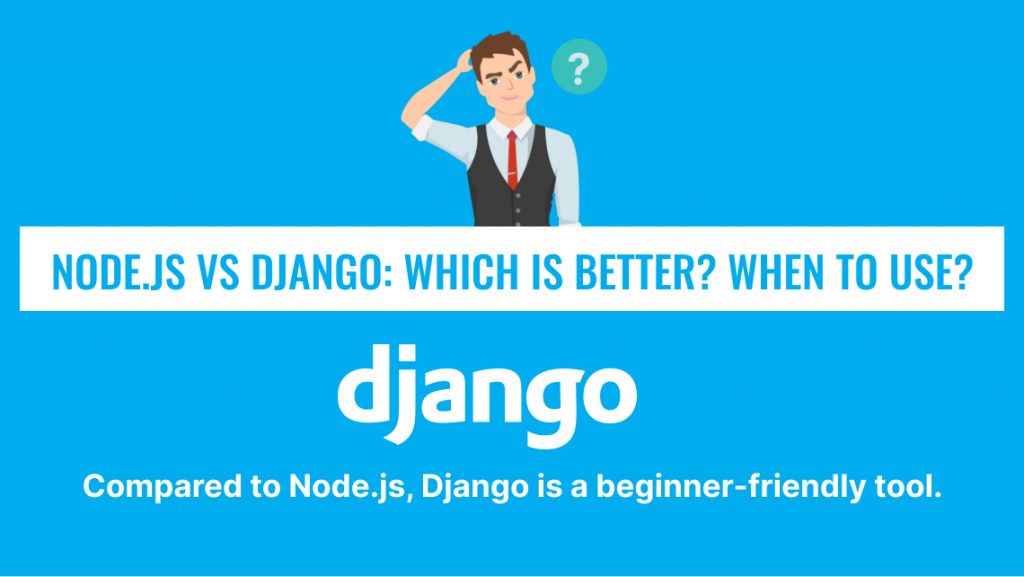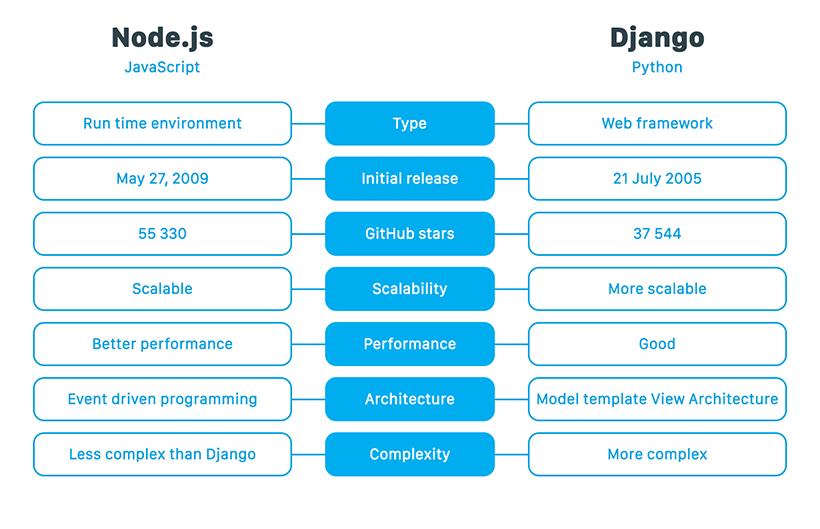The two best tools which are quite helpful in building a powerful web application is Node JS and Django.
Node JS – JavaScript is used on both the client-side and server-side of the web applications. But, the Django framework help developers to create web applications in a quick time.
Both are used in doing big projects and are upgraded regularly. Though the quality of both tools sometimes makes a user a bit confused, this article will clear the air and let you choose one of them.
Rather than wasting time, let’s look at both tools and try figuring out which one is best (Node.js vs. Django) in the 21st century’s custom software development industry.
Node JS
JS stands for JavaScript, which is mainly known for client-side development. Moreover, Node JS works on the server-side.
Node JS released in 2009 is written in C, C++ & JavaScript and is an open-source environment, built on the Google V8 JS engine.
It is easy to install Node JS on windows with Windows Installer. We here are not going to tell you the manual installation method but will only discuss the pros and cons! Let’s start with advantages first;
Advantages of Node.JS
Source: thinkmobiles.com
● Availability of development libraries
● Highly scalable performance
● Best APIs
● A best in-built package manager
● An active and large user community
● Easily handle requests
Disadvantages Of Node.JS
● It is challenging to perform asynchronous programming
● Doesn’t work great with CPU intensive apps
Source: slidesharecdn.com
Django
Django is a robust open-source high-level Python web framework mainly used in quick web development projects. Also, it’s a beginner-friendly for those who understand Python clearly.
Django offers a clean design and is extremely helpful in building complex web applications.
Advantages of Django
● Fewer security loops
● Finely works with relational databases
● Easily learnable
● High-Speed development
● Highly scalable with great documentation
● Strong user community
Disadvantages of Django
● Monolithic approach in software application
● Not useful in making small-scale apps
● Though easy to learn, you need a full understanding of this web development framework before starting your work.
Source: data-flair.training
We have learned a much introduction about both frameworks; however, to choose one, we must compare each other. Thus, this section below will enlighten you more on Node.js vs. Django 2019.
Following are the parameters on which we will compare the frameworks. After doing a firm comparison, we also will affirm you with the use cases, examples such that with this guide Django vs. Node.js: A Detailed Comparison, you can choose the best one for your web project.
Node.JS vs. Django: Programming Language
If the Django uses Python, Node.JS uses C, C++, & JavaScript. Python is the world’s most popular language, while JavaScript is dynamic and elegant. Additionally, the learning curve of both languages is steep.
In addition to it, you can call Django a fully-fledged scripting language and Node.js a runtime application. Also, Node.js is a full-stack operation, but Django isn’t.
Winner (Node.js vs. Django): If you want to get something quickly, then use Django; otherwise, use Node.js as your full-stack solution.
Node.JS vs. Django: Learning curve
As we know, Node JS is client-side browser environment and Django a Python web framework; you need to learn both tools. To learn them intensely and in-depth for a better useable purpose, it is essential to get comfortable in various programming languages.
In Node.js, learning is much more difficult as the understanding of asynchronous programming language is necessary.
However, in Django, learning is a bit simple with the full understanding of MVT architecture.
There are lots of good online tutorials and tutor present over the internet! But, you need to select the one which ignores the old teaching and makes all the concepts of these frameworks easy for your understanding.
Hence, first do the research and then commit yourself to one of these frameworks.
Node.JS vs. Django: Scalability & Performance
Both of the frameworks, Node.js & Django are exceedingly scalable and high in performance. If Django is good in scalability, then Node.JS is good in performance.
Using the cluster module, you can easily scale Node.js application. However, since it works with single threads, Node.JS show low performance in CPU intensive conditions.
With Django caching of applications is easy and highly scalable. Moreover, it is done using tools like MemCache, NGINX which handle data migration robustly.
In terms of scalability and performance, both are ideal! Moreover, both frameworks fit to the needs of web development, which is highly credited to their architecture.
Node.JS vs. Django: Architecture
Django uses a design pattern like Model View Template (MVT), which is similar to the Model View Controller (MVC). The MVT pattern organizes all the data or information in the framework.
Node.JS uses an entire architecture based upon the event-driven programming. Therefore, whenever an event is detected, the main loop has a callback function.
In the early days of a few top web development company in USA, things were basically page-oriented while skipping event-driven programming.
If we have to conclude both framework and their architecture pattern, then MVT is best in server-side development, but event-driven programming is unidirectional.
Winner (Node.js vs. Django): Choose Django for agile and quick web development. Furthermore, use Node.JS as a full-stack scalable solution.
Node.JS vs. Django: Templates and Documentation
The in-house template system in the Django reduces the work time. Furthermore, it keeps running up and helps in decision making from the documentation.
But, Node.JS is a fully open system. If you are a creative, experienced, and dedicated developer, then Node.JS is more helpful.
Winner (Node.js vs. Django): If you are a beginner, then Django serves you well; otherwise, as a professional web developer, choose Node.js.
Node vs. Django: Security
Since Django uses Python-based programming, it efficiently provides better and easier security. On the other hand, Node.js has protection, but sometimes you might feel some faults in it.
As far as web development projects are considered, security is by far the most crucial factor before choosing any web development framework.
Winner (Node.js vs. Django): If you are a beginner, then Django serves you well; otherwise, as a professional web developer, you can use either of them.
Node.JS vs. Django: Customizability
Node.JS gives you more freedom in web development as compared to Django. Though Django offers more solutions to the problems due to its vast library, template, and productivity.
While on the Node.js there is more structure to work! Subsequently, you can create a more beautiful and creative project.
As a result, our clear Winner (Node.js vs. Django) is Node.js in customizability.
Node.JS vs. Django: User Community
Both web development frameworks have stable, robust, and well-developed online communities. If you have difficulties in development while using Node JS and Django, then you can visit these communities to get solutions to your problems.
Compared to Django, there are more companies in the world business of software development industry using Node as their backend web technology.
Here we have examples to support our statement;
Big companies using Node JS as their backend technology: Uber, LinkedIn. GoDaddy, Duckduckgo, PayPal, Netflix, Twitter, etc.
Big companies using Django as their backend technology: Pinterest, Dropbox, YouTube, Instagram, etc.
A Quick Short Comparison: Django vs. Node.js
● In terms of performance, Django is better than Node.js.
● In terms of complexity, Node.js is more accessible than Django.
● In terms of scalability, Node.js is more scalable than Django.
● In terms of security, Django serves you well when compared to Node.js.
Now we know both framework’s characteristics, quality, use cases, and examples where they have been used; or are in usage. It looks to answer is quite clear that, somewhere in the midst of doubts surrounding both frameworks, Django is 20% ahead than the Node.js.
And if not, then we must find out;
When Django must be used over Node.js?
Compared to Node.js, Django is a beginner-friendly tool, if compared to Node.js. The main reason behind putting this statement is the programming language upon which the frameworks are based.
You will get a comfortable experience in both JavaScript & Python, but for an impressive, stable, scalable work you can use Django over Node.JS.
Node JS and Django, they both are the free framework to use! Moreover, you will not face any kind of licensing issues as they both are open-source software in web development application industry.
Both web development frameworks are great to create web applications; however, there use cases makes them different from each other.
For example, Django is an excellent choice for your web development project when you use a relational database. The presence of extensive external libraries and a top class security build the web application project quickly.
In case of Node JS, whenever you require an asynchronous stack, a great performance, and web building features from scratch for the server side, Node.js helps you a lot and does the heavy client-side processing.
We can give you a final call from our side to choose any tool or framework that best suits and serves your needs, as both web development frameworks are strong and powerful.
